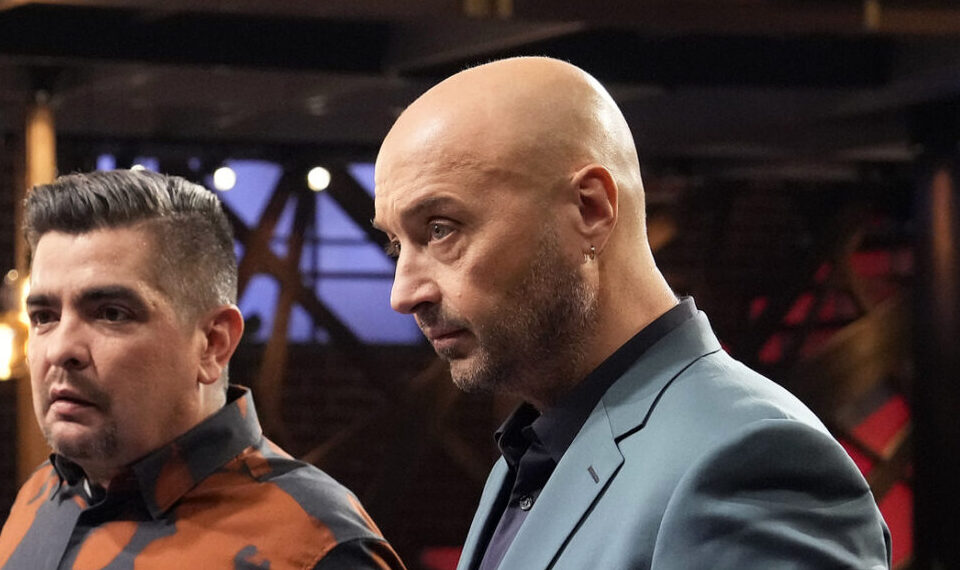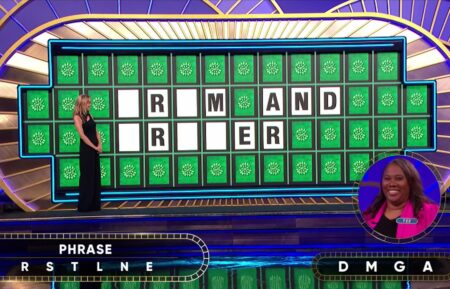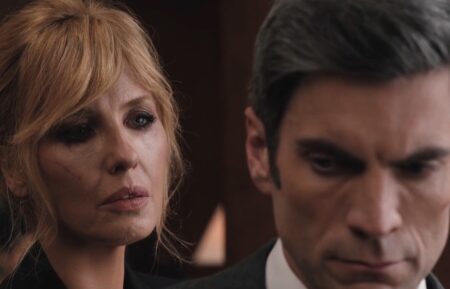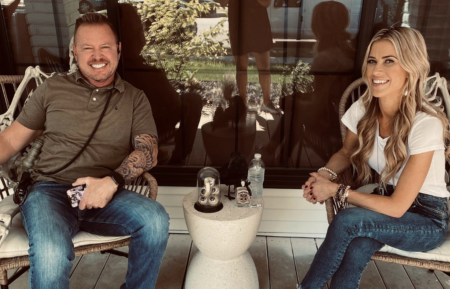‘MasterChef’: Joe Bastianich Previews Divisions Ahead on ‘Generations’

Preview
The chefs representing each generation (Baby Boomers, Gen X-ers, Millennials, and Gen Z-ers) have been chosen on MasterChef, and the real competition has begun. Following the first day of cross-generational competition — which saw millennial competitor Si Envytnc Nguyen go home — things are only going to get more interesting, according to show judge Joe Bastianich. In Wednesday’s (July 10) new episode, “Age Is Just a Number,” the contestants will be challenged to cook with aged and fermented ingredients, which is a clever nod to the Season 14 theme.
According to Bastianich, the format for MasterChef‘s current season will continue to bring out some truly interesting colors in the competition, given the contestants’ natural adherence to the traditions of each era in the kitchen and in the field.
TV Insider caught up with Bastianach to talk about what’s ahead on MasterChef: Generations and get some behind-the-scenes details about the decorated chef’s experience judging the show for so many seasons.
When you came into Generations, did you have any preconceived notions or biases?
Joe Bastianich: Yeah, the classic ones. Like with the Boomers, I knew I was going to get meatloaf. And with the Gen Z-ers, I knew I was going to get substitute ingredients — the classic stereotypes of each generation. And they came to be true, but there were a lot of other surprises in the middle as well.
Did your expectations differ between the generations — as in, did you have different levels of expectations?
No, ultimately, it’s just what the flavor is on the plate. An old school dish like meatloaf or chicken kiev can be great, just like a zucchini substitute pasta with a curry can be great. And it’s just about, what’s the quality of the dishes?
How closely did you guys prefer the contestants hew to the traditions of those generations?
I mean, it’s almost like they can’t help themselves because they are that generation, so they are what they are, and that comes through. So you don’t have to coach it. We didn’t ask them to stay within it. You just let them have the freedom to be themselves. And then they were kind of the teams of generations, they fed off with each other, but the generational tendencies and attitudes definitely came through in a strong way. It’s really interesting, actually.
Can you elaborate on that? How did the generational attitudes come through?
Well, the Boomers came with the sensibility of people of that age, more old-fashioned recipes, ingredients from the ’70s and ’80s, dishes that you’ve never heard of. Gen X, my generation, you see the first people who are trying to cook more international food, sushi, Thai, all that stuff. The millennials are the first kind of digitally-focused people, so they’re very informed on ingredients, and they know everything about the world, and the Gen Z-ers, they’re just like kids. So they’re all about TikTok and how good it looks and how many likes it gets. And it doesn’t matter. That’s not true, but [still].
Do you think anyone had a distinct advantage coming in for this any one generation?
No. It was really an equal playing field, in my opinion.
You seem like the one judge who’s never swayed by the story of the contestants. Can you talk about how you mentally process the emotional appeal of people but still make a clean judgment?
I kind of always have, for good or for bad, treated it like I was working in my restaurant and judging like a cook, and just go right to the dish, whatever. And I mean, you have to take some of the emotion into consideration, but at the end of the day, I’m there to find America’s next MasterChef, and it’s all about the food.
When contestants come to you in this, in this competition, is it advantageous or a disadvantage for them to cook something that you love?
Well, all right, so I get put in the category of Italian and pasta. Pasta is a big player. Everyone eats a lot of pasta… I think that it’s bifurcated because if it’s really good, I can tell you why it’s really good and exalt it and enjoy it with authority. And if it’s bad, I can tell you exactly why it’s bad and where you went wrong.
Speaking of pasta, your mom came on this season. Can you talk a little bit about what it was like for you to work with her on the show again?
Oh, we’ve been doing it for years. It’s great. She comes on the show, she says things about me that are really embarrassing. She treats me like I’m seven years old in front of everybody. But it’s great to have her. She has a unique perspective, and she’s been doing it a long time, and she has a special heart, especially in the age of maybe the Baby Boomers and the Gen Xers who know her from years of television. So it’s always good to have her.
You said several times during the auditions that the competition was a cut above and that you guys were having some pretty high standards this year. Do you feel that that continues on past that stage of the competition?
Oh, absolutely. Look, every year, in 15 years of doing this, the level goes up. Also, the mentoring, the tutoring, the resources they have, the information they have, the game always gets higher so it’s not BS when we say every year that the level is higher because it really is.
What else can we look forward to from Season 14? And why is this Generations thing so special?
Because the generation thing is going to play out not only in the dishes. Now we get to mystery boxes and field challenges. You’re going to see them in the real world. And you’re going to see not just the food tendencies, but also how people behave. A Gen Z-er thinks about the world in a very different way than a 70-year-old Baby Boomer, and that’s going to play in a field challenge or in a competitive challenge. And they’re in teams now… So, real life comes into play. Real life, real people at the end.
MasterChef, Wednesdays, 8/7c, Fox








